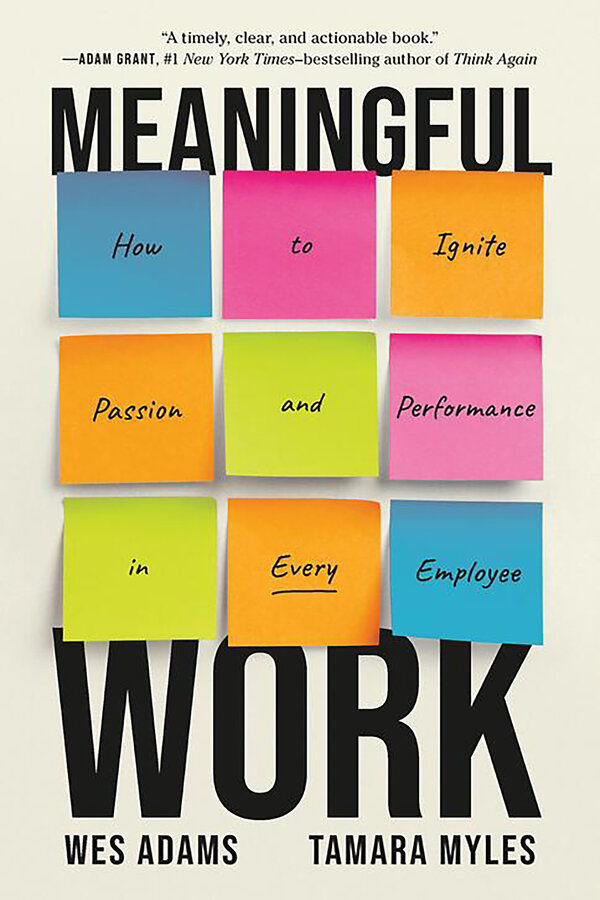After ‘Severance,’ will we ever see work-life balance the same way?
Loading...
Mark Scout sold himself out to a big corporation. Half of himself, to be precise. He underwent surgery that partitions his memories, effectively creating a split personality.
As soon as Mark enters the windowless office, he cannot remember his life outside of work. He shares a four-quadrant cubicle with colleagues who organize numbers on a computer. As for perks? There’s a vending machine with healthy snacks such as raisins, seeds, and nuts.
Once Mark exits Lumon Industries, he has zero recollection of his corporate self, his colleagues, or even what type of job he does. This “outie” version of Mark lives in a state of stress-free permanent vacation. By contrast, his “innie” experiences only drudgery. Call it a radical experiment in work-life balance. Or, more accurately, imbalance.
Why We Wrote This
A story focused onIs “Severance,” about workplace drudgery, the greatest exploration of work-life imbalance ever filmed? In its satirical moments, the series raises questions about what makes work – and, indeed, life – meaningful.
Mark is the protagonist of the surrealist workplace TV series “Severance.” Think “Office Space” meets “Twin Peaks.” Now in its second season, it’s the buzziest show on Apple TV+. Perhaps the reason it resonates is that we’ve all felt like an “innie” at some point in our careers. Viewers root for Mark (Adam Scott) and his colleagues as they rebel against the sinister Lumon corporation that has effectively enslaved them. In its satirical moments, “Severance” raises questions about what makes work – and, indeed, life – meaningful.
“[‘Severance’] is a great lesson for us that it isn’t about a work-life balance,” says Jim Salvucci, a business leadership consultant. “It’s not yin and yang. It’s just life. And what we need to do is find a purpose in our life and find a purpose in our work.”
Bore out vs. burnout
Series creator Dan Erickson got the idea for “Severance” while working for a door factory. Stuck inside a fluorescent-lit office next to the production floor, he was cataloging parts such as door hinges. Mr. Erickson yearned to just jump ahead to the end of the day.
“I was like, ‘That’s kind of a weird kind of messed up thing to wish for,’ because ideally, we should all want to experience the totality of our lives,” Mr. Erickson told an interviewer at SciFiNow.
In the pilot, the suit-and-tie worker bees at Lumon are reasonably content. Then Helly Riggs (Britt Lower) shows up. The new Macrodata Refinement Department employee is tasked with moving numbers on her screen into folders. It crushes her spirit.
“We’re bored when nobody’s investing in us, when no one’s noticing us and giving opportunity to learn,” says Tamara Myles, co-author of a forthcoming book, “Meaningful Work.”
Members of Generation Z who are entering the workforce right now are experiencing what’s called “bore out” instead of burnout, says Ms. Myles. The term describes the experience of not feeling challenged and of wasting your potential. It leads to the same outcomes as burnout.
In “Severance,” Helly foments a rebellion by encouraging her colleagues to question the work. She asks what the numbers on her computer signify. No one knows.
“The work is mysterious and important,” Mark says defensively.
Except he has no idea what sort of product Lumon Industries creates. He’s also at a loss to explain why there’s an office further down the corridor filled with bleating goats – one of the many weird aspects of Lumon.
The “Severance” scenario is slightly reminiscent of a real-world situation recounted in Ms. Myles’ “Meaningful Work.” Six months into the COVID-19 pandemic, a woman named Keisha was considering quitting her job at a data center in Toronto. She was spending 12-hour shifts maintaining row upon row of blinking servers inside a cold, sterile warehouse. A bit like Lumon, but without the petting-zoo animals.
“[Keisha] had no idea what was happening on those servers,” says Wes Adams, the book’s co-author. “They don’t tell people what they’re about.”
Following a workshop conducted by Mr. Adams and Ms. Myles, it dawned on Keisha that those servers were making remote schooling possible during the pandemic. She realized that her work was enabling people to connect during a time of crisis. Keisha scribbled that down on a Post-it note and stuck it on her computer monitor.
The authors say that the beating heart of meaningful work is understanding that your job improves the lives of others. “It means that we’re inherently good and that we care about the welfare of others,” says Mr. Adams. “We’re social animals. That’s why community is so important to us. That’s why contribution is so important to us.”
At Lumon, the “innies” are so desperate to attach meaning to their work that one employee muses that it’s in service of cleaning the oceans. Organizational behavior experts recommend that businesses clearly define their missions. That goes beyond just having a slogan written on a wall in the office. Invite employees to articulate what it means to them.
“If there is no autonomy, then there is no opportunity to explore how you can create meaning,” says Evgenia Lysova, associate professor in organizational behavior at the Department of Management and Organization of Vrije Universiteit Amsterdam.
In “Severance,” however, the “innies” are infantilized. Overbearing supervisor Mr. Milchick (Tramell Tillman) constantly monitors productivity. Sometimes he hands out balloons or brings in a tub of water so employees can go bobbing for pineapples. (You won’t find those tips in a Peter F. Drucker business book.) Floor manager Ms. Cobel (Patricia Arquette) makes “The Devil Wears Prada” boss Miranda Priestly seem warm and fuzzy. Upon promoting Mark to chief of his section, she cites a company policy: “A handshake is available upon request.” Ms. Cobel looks mildly mortified when Mark takes her up on the offer.
“When [Mark] gets the role of the leader, he actually cares for and respects the fellow colleagues,” says Ms. Lysova. “They are searching for meaning, and he actually helps them feel that they belong.”
“We’re people, not parts of people”
Great company leaders make employees feel as if they’re part of a community, says Ms. Myles, the author. They take a genuine interest in who people are as individuals. Knowing their spouse’s name, for instance, or whether they have children. Asking what book they’re reading now or what they did last weekend. If people feel seen, they bring their best selves to work.
“Mark says something like, ‘We’re people, not parts of people,’” says Mr. Salvucci, who teaches leadership skills. “But when we, in our mind, sever our work from the rest of our life, that’s what we’re functionally doing.”
Mr. Salvucci points to Viktor Frankl’s “Man’s Search for Meaning” as a book that encourages readers to find purpose in life and figure out what sustains them.
“If you’re fulfilling something, and you know you’re doing well by your own values and by the world – whether you’re at work or home – you know that that’s ideal, that’s the balance you want,” says Mr. Salvucci. “And that’s not a balance. That’s whole. That’s the whole thing.”







